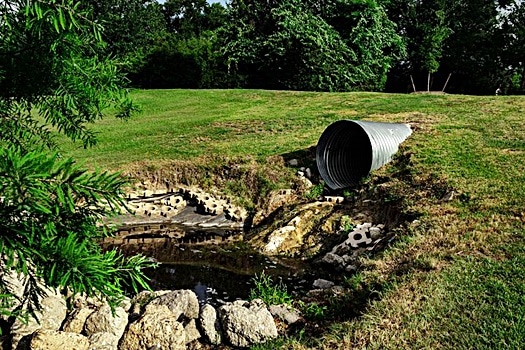Are you Looking for a well-paid job? Everybody wants to be successful: management, owning your own business, or a promotion at work. But before you get there, you have to do the tough work. That’s why, if you’re out of work, finding the jobs that no one else wants to do, is the perfect place to start.
It’s by far the easiest way to get a job when you’re unemployed. There’s less competition for each role, which means you’re far more likely to be on the employer’s shortlist if you apply. And by showing real enthusiasm for a hard or unpleasant job, it shows character.
So, which jobs are a good choice? There are dozens of opportunities. But what you might not know is that there are some high-paying jobs for you out there, too.
[su_list icon=”icon: check-circle”]
Jobs No One Else Wants to Do
We’ve found fifteen jobs that no one wants to do but pay well. These are high-paying jobs no one wants: they might be difficult, or they might be unpleasant, but you can earn a good living from them. And they’re an excellent starting point for getting back into employment.
1) Toll Booth Worker
Being a toll booth worker isn’t necessarily dirty or difficult. More than anything, you could call it dull. If you work on a busy road, you’ll be collecting and handing out change non-stop, all day. If you work somewhere quiet, there might be nothing to do for the majority of the day.
If you’ve never worked a tedious job before, it’s surprisingly hard. Maintaining concentration is a challenge. The biggest issue with working in a toll booth, though, is dealing with the occasional angry motorist. That’s especially the case if they don’t have the right change.
Because of the nature of the job, you don’t need qualifications. You don’t even necessarily need experience, so long as you show competence. Basic numeracy skills wouldn’t go amiss since you’ll be counting change all day. But apart from being able to count money correctly, and the ability to withstand day after day of complete boredom, you don’t need much to be successful.
How Much Does It Pay?
Wages vary, but working in a toll booth is one of the highest paid unskilled jobs in America. The good thing about working in a toll booth is that you’ll have plenty of opportunities to work overtime.
New York Up State covered a story about how two toll booth workers earned over $100,000 through overtime earnings. Their base salary was already north of $50k. But by working over 60 hours a week—double shifts of 16 hours—they doubled their salary.
2) Correctional Officer
Working as a correctional officer is, no doubt, a difficult job. Depending on the institution you work for, you might be among hardened criminals day in, day out.

This is difficult for many reasons:
- You have to work all day surrounded by people who can’t stand you
- The job itself is dangerous, in the event of an assault or prison riots
- The job requires training, especially in the use of force and restraint, first aid, and criminal law
A correctional officer’s job can be entertaining, but often after many hours of boredom. You spend your day searching through prisoner’s cells for drugs or restricted items. You also ensure that order is continuously kept. This means preventing fights, enforcing discipline and preventing escapes. Most jobs as a correctional officer only require a high school diploma.
How Much Does It Pay?
According to the U.S. Bureau of Labor Statistics, there were 434,000 correctional officers in the U.S. earning an average salary of $43,550. Again, that’s north of the median U.S. wage.
The salary does vary depending on where you live, however. Officers in Georgia and Arkansas earn less, for example, whereas those in California earn an incredible $72,000 median wage. That’s without overtime, too.
3) Roadkill Collector
Ever wondered where roadkill goes? There are many eventual ‘destinations.’ Sometimes, roadkill is eaten by other animals. But in most cases, it has to be collected and moved by a roadkill collector. This is especially the case for larger animals: deer and the like.
Roadkill collectors do exactly what you imagine: once a report of roadkill comes in, a collector comes to take it away. Most collectors drive around, keeping an eye out for anything they can collect.
This job is difficult for obvious reasons. For starters, it’s stomach-turning. There’s no guarantee that the roadkill hasn’t been in the road for many days. However, the other challenging aspect of the job is that it’s dangerous. You’re working on the roads: there’s no accounting for bad drivers. As you might imagine, you also don’t need qualifications to work as a roadkill collector.
How Much Does It Pay?
Being a roadkill collector pays incredibly well. You’re paid per carcass you collect. A piece on roadkill collector Charles Brannon on CNN.com gave his annual wage as $72,000. That’s a huge amount for a non-skilled job.
4) Stonemason
Stonemasonry isn’t necessarily a job that you wouldn’t enjoy. But have you ever considered being one? Probably not. It’s a simple job. You spend your days building things out of stone, like walls and walkways. There’s no end to the one-off projects you can work on, like landscaping yards.
But it’s not just about laying bricks and stone for pathways. The point of stonemasonry is that you shape rock to fit the need. This involves using specialist tools like a hammer and chisel. It’s something that’s easy to get the hang of, but difficult to master. That expertise is what leads to having a higher wage than your average physical job.
You don’t need any qualifications to get started either. If you’re looking for easy jobs to get into with no experience, this fits the bill.
How Much Does It Pay?
Stonemasonry pays decent wages. According to the Bureau of Labor Statistics, the median annual wage is $38,940. That’s more than the national average. There’s also scope for improvement: the 90th percentile of stonemasons earn $63,600.
5) USDA Food Grading
Before food gets to the store, somebody has to make sure it’s up to standard. That’s what food grading is for. There are all sorts of jobs you can get with the USDA (the US Department of Agriculture). Most are simple: you look at the quality of meat or produce, make sure it’s high quality and fresh, and either approve it or not.
The reason why so few people would choose a job like this is the proximity to slaughtered animals. You examine the animals both before and after slaughter and make sure that the process itself is compliant with U.S. and state regulation.
You also have to think of sanitation. Slaughterhouses can get dirty, fast. So, if you have a weak stomach, this isn’t the job for you. Like most of these jobs, you don’t need qualifications to get through the door.
How Much Does It Pay?
The pay for food grading is fine. The salary for most positions ranges from $33,000 to $43,000. But, like always, expertise can net you more. You can find salaries of $53,000 and more on U.S. job sites.
6) Welding & Cutting
Working with sheet metal is a classic job, and it can be performed by machines. But quality welding is done by hand. As a welder, you either do the job yourself or control a machine that does it for you. This could be in a factory working on new products, or it could be in repairs.
Factory work in the past may have been hot and sweaty, but it’s not always like that today. The industry is growing, too, as more people realize that it’s not as bad as you might imagine. That being said, it’s still physical work, and the potential for accidents is relatively high. You also don’t need an extensive education to get started.

How Much Does It Pay?
The national average for a welder and cutter is $40,000 per year. According to the Bureau of Labor Statistics, the industry has grown by 22,000 jobs over the decade up to 2016.
7) Solar Photovoltaic Installers
The name of your job might be a mouthful, but it’s not that complicated. Solar photovoltaic installers install and maintain solar panels. This is one of the fastest-growing industries in the U.S. today: it’s expected to double in size between 2016 and 2026. Your responsibilities are easy: you start by setting solar panels in place, on rooftops or in fields. You work with a team because they can be surprisingly heavy.
You also have to connect them to the electrical system and make sure they’re properly sealed against the elements. After activation and testing, you’re done. You may also have to do routine maintenance to make sure they’re working properly. There are rules and regulations for the job: building codes you have to adhere to. But like most jobs on our list, you only need a high school diploma.
How Much Does It Pay?
The pay for being a PV installer is decent. According to the Bureau of Labor Statistics, you can expect to earn just shy of $40,000 a year. That’s $19 per hour.
Jobs in this industry are a little thin on the ground at the moment. But there are going to be more and more positions available as solar panels become more widely adopted. Soon, it’s going to be one of the best jobs that are easy to get hired for.
8) Concrete Finisher
Working in construction is an excellent idea if you need quick money, and don’t have many qualifications. But have you thought about specializing in certain kinds of construction? Concrete finishing is an excellent example. Concrete finishers are specialist tradesmen who work solely with concrete.
If you get concrete wrong, it’s a nightmare to get right again. Cracks can easily spread, water can get in, and what was once a wall or walkway is quickly a hazard. Without getting into too many details, the job is a physical one, outdoors.
Concrete finishers are, obviously, experts with concrete: they use special tools and techniques to help concrete set in a perfect finish. To become one, you would work closely with an experienced finisher and learn from them. Before long, you’d be an expert yourself.
How Much Does It Pay?
The average annual pay for a concrete finisher in the U.S. is $41,000. According to ZipRecruiter, the salary ranges from $21,500 to $60,000 nationally. That’s better than your average construction job.
9) Snow Removal
It’s a classic job for kids: shoveling snow on a freezing January morning. But when most people quit and look for a ‘real career,’ some people carry on. It’s possible to be a professional snow plow operator, and the job pays surprisingly well. As you might guess, it’s a seasonal job. But while the work is there, you can get plenty for it.
Your duties will involve removing snow with a variety of equipment. This could be as simple as a shovel—like it always used to be—or a full-on snow plow. Once you’re done, you’ll have to spread salt to stop any drives or roads freezing over.
You can get a job either with an independent business or with a local authority. The wage, consequently, varies. All you need is to be big and strong (if you’re shoveling snow by hand).
How Much Does It Pay?
A quick search on a job site will show you a variety of salaries. The majority of jobs pay a bang average wage: about $15 per hour. But others pay a set amount per drive or site, and you can earn more. And some higher paying businesses pay $25, $30, even $35 per hour.
10) Sewer Inspector
Here’s one of the traditional jobs no one else wants to do. Being a sewage inspector is vital. Without them, sewers would become clogged and quickly overflow. The main responsibility of an inspector is actually to check the pipes. You have to make sure there are no cracks, leaks or blocks in the sewer. And if you find any, you have to fix them. It’s like unclogging a toilet, but much bigger, and much worse.
In the event of a big clog, sewage gets backed up fast. You have to wade through anything you find to get your job done. Unsurprisingly, this puts a lot of people off the job. Another drawback to being a sewage inspector is your ‘co-workers.’ While you’re down in the sewer, you’ll find plenty of cockroaches and rats. If you’re not a fan of either, then this isn’t the job for you.

How Much Does It Pay?
It pays very well. Quick searches on well-known job sites offer a wide variety of wages: the lowest at about $30,000, which is still good, and the highest at between $50k and $60k. It takes a whole lot of stomach, but you could be taking home a substantial wage each year.
11) Wastewater Treatment Plant Operator
While we’re on the subject of sewage, here’s a similar job. Wastewater treatment plants take sewage from towns and cities and convert it into usable water. A variety of processes render dirty water into perfectly drinkable water that’s chemically identical to fresh rainwater. But before it’s clean, it’s sewage.
There are all sorts of jobs available at wastewater treatment plants. General operators manage waste with machines: sending it to different stages of the cleaning process when it’s ready. You won’t come into contact with sewage like a sewer inspector. But even so, working there won’t smell too nice. Typical educational requirements are a high school diploma or equivalent.
How Much Does It Pay?
According to the Bureau of Labor Statistics, the median U.S. wage is $46,150. That’s over $22 per hour, which is a lot more than you’ll get working in a restaurant or discount store. All you have to put up with is the smell.
12) Power Plant Operator
Here’s a job that you’ve probably never thought of, but pays an amazing wage. Working in a power plant is relatively simple. You’re in charge of heavy equipment, burning fuel to produce power. You have to be comfortable reading charts and meters, and checking and maintaining equipment. There are all sorts of guidelines and rules in power plants, which you have to understand too.
The job itself, believe it or not, only requires a high school diploma. That’s typically coupled with extensive on-the-job training before you’re ready to work, though. It’s also a stable job: we’ll always need power and electricity. But what sets it apart is the wage.
How Much Does It Pay?
According to the Bureau of Labor Statistics, the median pay for a power plant operator is $80,440. That’s not even including overtime so that you could earn even more. With the training you get, you’d be set on a viable career for life.
13) Mortician
A mortician is another name for an undertaker or a funeral director. You’re in charge of organizing funerals. When somebody dies, you don’t put them straight in a coffin and take them straight to a cemetery. There are all sorts of things to do in between.
So, for example, embalming: using chemical treatments to preserve the body as best as possible. You may also have to dress the dead. Cossetting is the term for applying cosmetics to somebody who’s passed away, which is necessary if there’s an open casket. You’re also in charge of burial or cremation. It’s understandable why some people might be put off.

How Much Does It Pay?
According to the Bureau of Labor Statistics, the mean annual wage for a mortician is a hefty $56,300.
14) Plumbers & Pipefitters
Human society will always need morticians; we’ll also always need plumbers. Plumbing and pipefitting have something of a bad reputation as manual labor. But if you’re out of work looking for a career, it’s an excellent opportunity. We don’t need to tell you what plumbers and pipefitters do. There’s plenty of unpleasant clogs to deal with, leaks that you have to fix and the like. Maintaining septic tanks is probably the worst part of the job.
But what you might not appreciate is how much they earn.
How Much Does It Pay?
Plumbers earn a median total of $52,590 a year. That’s plenty for most families to get by, and because of the nature of the job, it’s something you can do for years to come.
15) Roofer
If you ran into a solar photovoltaic installer, you might not know what they do. But if you ran into a roofer? You’d probably be able to guess that their job involves replacing, repairing and installing roof tiles. And you’d be right. It’s a heavy, physical job. In the summer, you’re out in the hot sun. In the winter, you’re in the cold, and maybe icy and slippery conditions.
You don’t need any education whatsoever to become a roofer. So long as you understand how to use all your tools, and you know how to work with your materials, you’ll be fine. You also have to be comfortable working in unsafe conditions. It’s a tough job, but a necessary one.
How Much Does It Pay?
The Bureau of Labor Statistics says that the median wage for roofers is $39,000. Also, there’s no doubt that you’d be able to make more if you work with good materials, and become an expert in your trade.
And there you have it: fifteen of the best jobs that no one wants to do but pay well. In the list above, there’s something for everyone. Even if you have no qualifications and no experience, there are plenty of options.
Take a look at your local job boards to see if there’s anything available from the list above. But before you do, take a look at one of our posts on improving your resume and learning how to search for jobs. With our help, you’ll be back at work in no time.
If you’re searching for work, here are the best cities for jobs in America (and why).
[/su_list]






